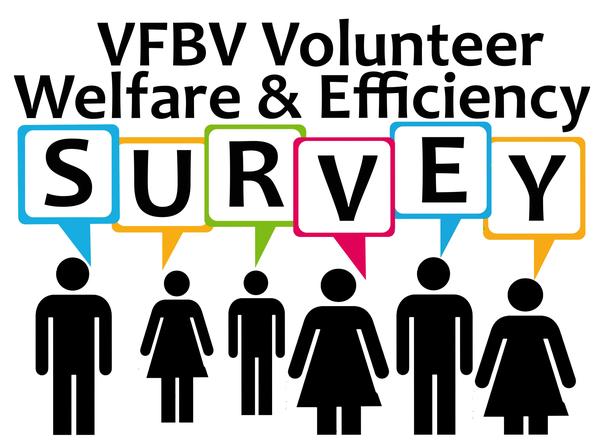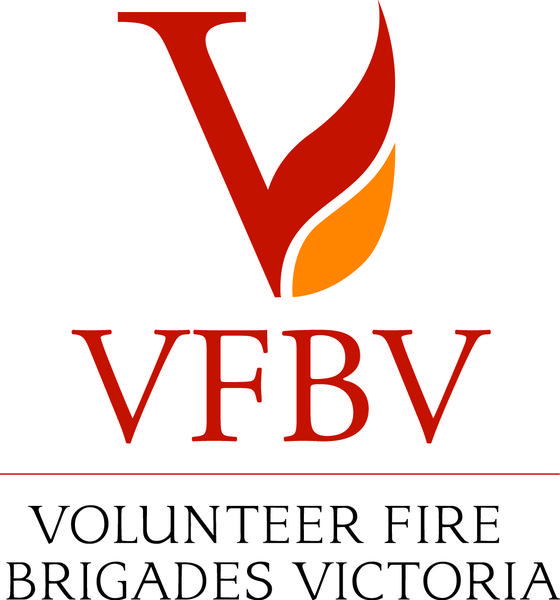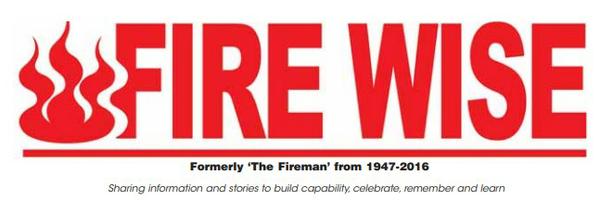It is clear from the fire seasons being experienced in Queensland and NSW so far this spring that this year’s fire season here in Victoria is more likely than not to
be a return to a longer and busier season ahead.
Given any fire season in Victoria has the potential to be ferocious, preparation and planning is as always – key.
And while our community facing messaging is focussed on ensuring communities and residents focus on making their fire plans, it is a timely reminder about the importance of our own planning as volunteers to ensure we are at full operational readiness for the season ahead.
Now is a great time to refresh your plan for your own
family outlining what they are going to do if you are called away. Also now is a good time to have those discussions with your employer about what flexibility you might have to be able to respond during the fire season. And from a brigade perspective, now is a great time to ensure all operational members have completed their Chief Officer’s mandatory requirements and burn over drill. Get it over and done with before the silly season to ensure you’re not trying to balance holiday commitments with
fire season preparedness activities.
It is also a busy time from a consultation perspective, with multiple items open for feedback. Don’t forget to regularly check our consultation dashboard on the VFBV website.
Last month we closed the feedback on CFA’s draft proposals to update the brigade/ group financial governance policies with CFA proposing six new policies. State Council spent
considerable time considering the feedback and studying volunteer responses.
It is clear from the feedback that volunteer morale continues to be significantly impacted, and volunteer feedback was dominated by complaints about additional bureaucracy and aspects that some described as petty. From an overall perspective, the policy
suite only enjoyed a very low 37% satisfaction score.
The difficult part for us when we are confronted with such overwhelming negative feedback is navigating the subsequent conversations with CFA and trying to convince them to revisit their base assumptions. While CFA has been known to shoot the messenger in the past, I do have
confidence that there is a maturity among the new executive team to take the feedback constructively and work though the issues.
The feedback reinforces my view that CFA volunteers are not opposed to change but are deeply cynical about constant changes floated without any analysis or evidence quantifying the problem that is
trying to be fixed. The case for change, or more succinctly the complete lack of a case for change to accompany the proposals does not help. I suspect volunteers would be far more open to change if they were let in on how the proposed changes will actually result in a demonstrable improvement.
As I was going through the hundreds
of individual items of volunteer feedback, I was reminded of the famous quotes attributed to American author Mark Twain and American poet Robert Frost “A bank is a place where they lend you an umbrella in fair weather and ask for it back again when it begins to rain.”
Volunteer feedback continues to highlight the disconnect
between CFA policy and what brigades and groups think the organisation should be doing to better support them where and when they need it.
The fact of the matter is CFA is chronically underfunded, and it is its volunteers who not only donate their time to provide CFA’s services to their communities, but at the same time give up even
more of their precious time to have to fundraise to purchase and upgrade the very same basic equipment, trucks, stations and protective clothing that the government routinely provides to its paid services.
Now this lack of funding isn’t the fault of CFA management. That responsibility falls squarely on government. However, it
does provide important context on how volunteers are going to react when CFA proposed policy starts reaching across and trying to control the very things brigades are being forced to do just to survive.
At the end of the day, brigades will do what they can to ensure their communities have the resources and equipment needed to
protect themselves from fire and other emergencies. CFA should either help, or at the very least get out of the way.
It is not until you look at CFA’s proposed finance policies from this perspective, that you start to appreciate the pent-up anger and frustration volunteers express towards CFA policy that just makes things
harder.
I have yet to meet a brigade that does not believe in strong financial governance, and the importance of ensuring community funds are used responsibly and to best effect. But to think that this would be better achieved by pages and pages of policy and red tape just fails to pass muster.
The most frequent criticism by volunteers to the draft policies was the perception that CFA is trying to treat its volunteers as public servants. Many volunteers were perplexed at why it was so remarkable to think that policies written for a large government bureaucracy like the VPS, who spend hundreds of millions of taxpayer funds may look and be different to
small community fire brigades that do their own fundraising and in of themselves generate more than $2.6 billion dollars of public value to the State of Victoria through their volunteer efforts alone. They are not a drain on the public purse, in fact they are one of the very few that actually add value back into the system.
Is it
really such a foreign concept to state the obvious and ensure CFA volunteers are not treated like Victorian public servants? There are no government departments I am aware that pass around a hat to all its employees so the staff can donate their own money to buy the pens, paper and photocopier used in their government funded workplace. I don’t recall ever seeing a public servant giving up their personal time to fundraise for public donations so they could replace their government issued fleet
vehicle. I don’t recall seeing police officers requested to buy their own guns or fundraise for their highway patrol cars. When were paramedics asked to buy their own first aid kits, defibrillators let alone their own ambulances? I also can’t remember seeing defence force personnel being asked to purchase their own dress uniforms. So why on earth would anyone think it is ok that volunteer firefighters should have to fight and fundraise to buy their own fire trucks, fire stations and protective
equipment?
The volunteer feedback was littered with these comparisons and pointing out the tone deafness in some of the proposed policies. Volunteers must fund their own welfare account and annual awards nights. Excuse me? These examples start to illustrate and explain the depth of anger and frustration evident in the volunteer
feedback to the draft policies. Not all the feedback was bad mind you, and many aspects of the policies were seen as common sense and practical, yet there were a handful of positions and policy statements that simply incensed volunteers, and fair enough too.
VFBV has now formally submitted its feedback to CFA and have requested
the policies be reconsidered, and that the tone and language used throughout is less condescending. For example, rather than “permitting” brigades to apply for grants or sponsorship, we have suggested brigades should be empowered by being “authorised.”
VFBV has also reinforced its long-held position of desiring a minimally
effective regulatory regime. In other words, we believe CFA policy to be more effective if red tape and bureaucracy is minimised, and that policy contains only the fewest number of rules, requirements, obligations and procedures to achieve the desired outcome. Additional obligations should only be imposed where there is a clear need, and a measurable benefit to justify its impost.
Volunteers have asked for greater flexibility, and for rules to better cater to the diverse range and size of brigades, rather than simply thinking a one size fits all will work for everyone. For example, a brigade financial plan for a large brigade is likely to look very different to a small brigade whose only income is their $350 annual brigade allowance.
Similarly, volunteers have opposed a ban on brigades being able to donate to worthy community causes such as a bushfire relief funds, especially from brigade income derived by volunteers providing their services under commercial arrangements, such as business paying for fire equipment maintenance and servicing of extinguishers.
This income is generated by volunteers on a fee for service basis, and its expenditure should remain at the discretion of the brigade. CFA often benefits from the community’s generosity, is it so hard to think brigades may want to pay that forward?
We will attempt to work constructively with CFA to revise the policies and will keep you informed of progress. We can’t do it without you though, and I again thank all those that provided their feedback. It has made a big difference and is being used to help affect real change.







